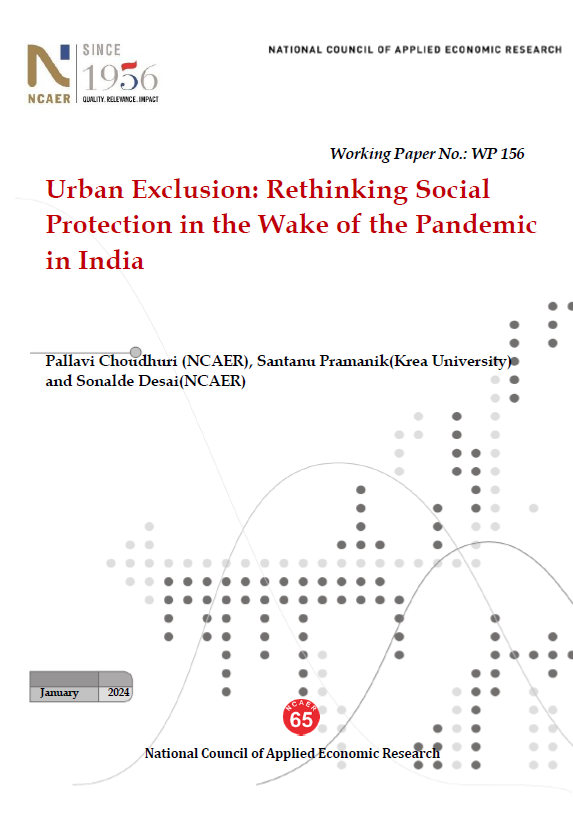Urban Exclusion: Rethinking Social Protection in the Wake of the Pandemic in India
Pallavi Choudhuri
Santanu Pramanik
Sonalde Desai
January 2024
The COVID-19 pandemic, and the consequent nationwide lockdown in India that began on March 25, 2020, caused a major disruption in the labour market, leading to the widespread loss of livelihoods and food insecurity. The findings from a telephonic survey of a representative sample of more than 3,000 households in the National Capital Region (NCR) also reveal a dramatic loss in earning capacity. The place of residence and occupation mediated the impact of the lockdown, with greater vulnerabilities witnessed amongst those engaged in informal employment, especially in urban areas. The Government rolled out a series of welfare measures in response to the widespread economic distress, with the provision of free foodgrains and cash transfers aimed at rehabilitating those who were the most affected. While the use of prior social registries enabled quick disbursement, our analysis shows that few households received both foodgrains and cash transfers, particularly in urban areas. Urban residents were also eight percentage points less likely to receive cash transfers as compared to their rural counterparts.
Human Development and Data Innovation







